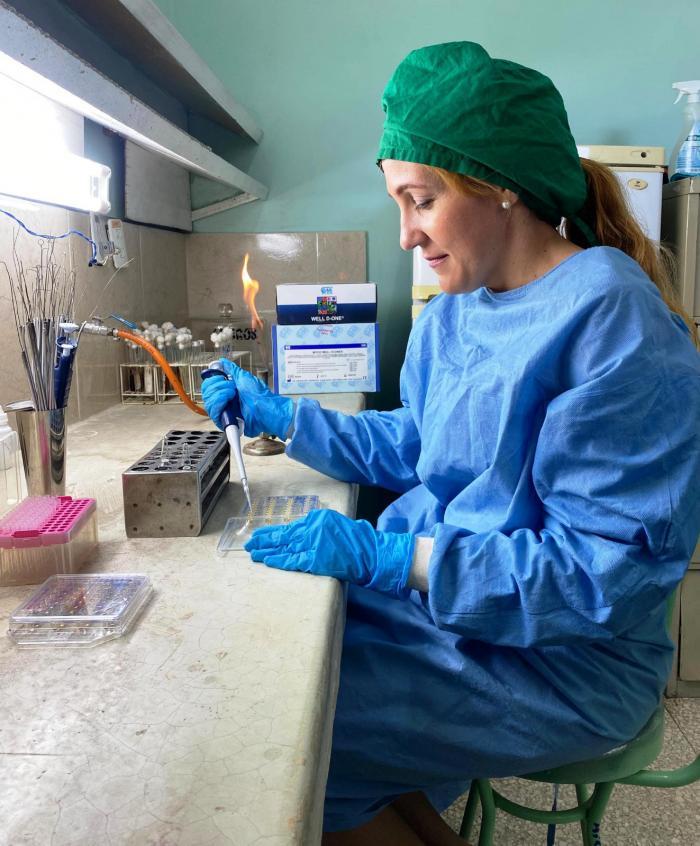
Santa Clara.— The main objective of a detailed study carried out in this province is to detect in time and fight against bacteria that can be transmitted from the mother to the fetus during pregnancy and cause respiratory infections such as connatal bronchopneumonia.
Dr. Dianiley García Gómez, a second-degree specialist in Microbiology and main author of the research, explained that it is a system capable of verifying whether newborns are carriers of bacteria of the urogenital mycoplasma species, among them Mycoplasma hominis and Ureaplasma spp, which lodge in the female reproductive system and infect the fetus, causing respiratory diseases that can even cause death.
By means of the research, carried out from 2022, and which included a total of 210 neonates, it was possible to verify, through the MYCO WELL D-ONE® system, that 59 of them were carriers of these microorganisms. This result, the specialist pointed out, made it possible to act in time and combat the disease with the required antibiotics, which in many cases prevented major complications.
The study, in which specialists from the Pedro Kourí Institute (IPK) in Havana, the center that validated the tests carried out, and from the microbiology laboratory of the Mariana Grajales Maternal Hospital in Villa Clara, as well as neonatologists and other experts, have participated, is already being extended to other territories in the central region, such as Sancti Spíritus.
The first research on the effect of microorganisms causing cervicovaginal infections in pregnant women and their effects on newborns carried out in Cuba were developed by the IPK in 2016, which served as a precedent and experience for microbiologists and neonatologists from Villa Clara in charge of expanding this practice, which can save the lives of many children.
The scientific literature consulted describes that up to 20% of newborns are colonized with these bacteria, being preterm infants those who have the highest risk of colonization. Hence the importance of the introduction of advanced methods in Cuba, such as the diagnostics for presumptive identification and determination of antimicrobial susceptibility of urogenital mycoplasmas, which contributes to establish treatment strategies.















